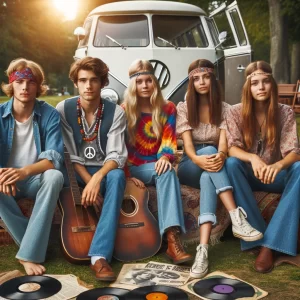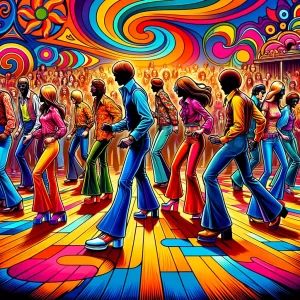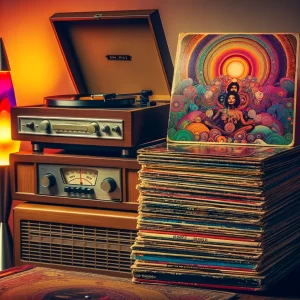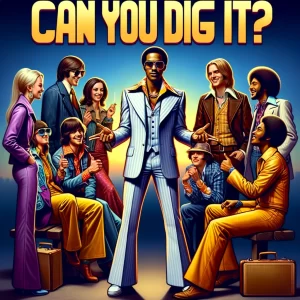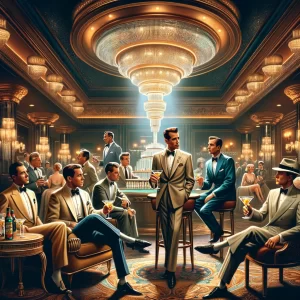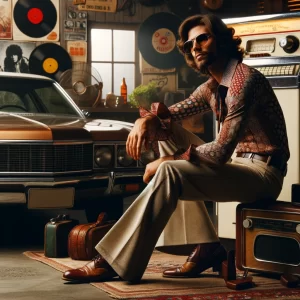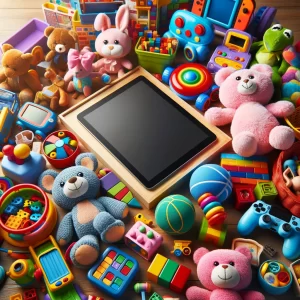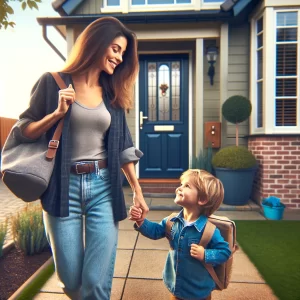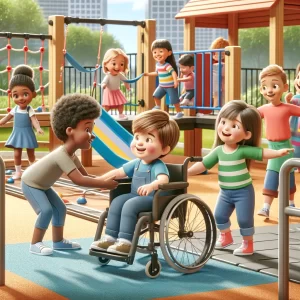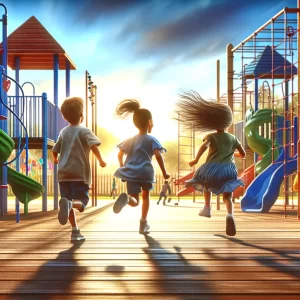In an ever-evolving linguistic landscape, the clash of generations brings to light the stark differences in their communication styles. With the rise of social media and digital communication, Gen Z’s lexicon has expanded with abbreviations, memes, and internet slang, leaving traditional phrases used by Baby Boomers often misunderstood or even unknown to the younger generation. Here are 18 quintessential Boomer phrases that seem like a foreign language to many Gen Zers, offering a nostalgic trip for some and a linguistic revelation for others.
1. “Cool Beans”
Originating from the 1960s, “Cool Beans” was a whimsical way to express approval or satisfaction. Unlike the straightforward “cool” of today, this phrase adds a quirky twist, embodying the playful spirit of its era. Its agricultural twist, though endearing to some, might leave many in Gen Z scratching their heads, wondering how legumes got involved in expressions of coolness.
2. “Far Out”
“Far Out” transcends the simple “wow” or “amazing” of modern parlance, capturing a sense of awe and admiration that was prevalent in the 70s’ counterculture. It evokes a time when exploration—both geographical and psychological—was a key part of youth culture. For Gen Z, accustomed to the instant gratification of digital experiences, the expansive vibe of “Far Out” might seem overly dramatic for everyday achievements.
3. “Groovy”
Once the epitome of cool, “Groovy” harks back to the 60s and 70s, synonymous with anything fashionable or excellent. It’s a term steeped in the musical and cultural revolution of the time, reflecting a smooth, rhythmic quality that’s less about being trendy and more about a vibe. To Gen Z ears, “Groovy” might sound more suited to a vintage vinyl collection than to describing a viral TikTok dance.
4. “Catch You on the Flip Side”
This phrase, rooted in the DJ culture of flipping records, was a stylish way of saying goodbye with the promise of reconnecting. It symbolizes a time when music wasn’t streamed but physically flipped, a concept that may seem alien in the age of digital playlists. For Gen Z, the “Flip Side” might be more reminiscent of flipping through apps rather than vinyl records.
5. “Bogart That”
Inspired by the iconic actor Humphrey Bogart’s on-screen persona, to “Bogart” something meant to hog or monopolize it, especially in the context of smoking. The reference to a mid-20th-century actor and the social customs around sharing make this phrase a curious relic for Gen Z, who might only recognize “Bogart” from classic film studies.
6. “Psychedelic”
“Psychedelic” is synonymous with the mind-altering experiences and vibrant art of the 60s and 70s. While the term still finds relevance in discussions around art and music, its original, transformative context might elude Gen Z, for whom psychedelic experiences are more likely to be digital and virtual rather than induced by the era’s famous substances or movements.
7. “Sock It to Me”
Popularized by the variety show “Rowan & Martin’s Laugh-In,” “Sock It to Me” became a catchphrase for facing something head-on, whether it be good news or a challenge. Its playful aggression and theatrical flair contrast with Gen Z’s more nuanced and meme-infused humor, making it an interesting linguistic artifact from a bygone era of television.
8. “Square”
To be called a “Square” was to be deemed uncool, conventional, or out of touch with the vibrant youth culture of the past. In today’s context, where individuality and authenticity are celebrated across social platforms, the idea of a “Square” seems almost quaint, as Gen Z embraces a spectrum of identities far wider than the binary cool/uncool dichotomy of the past.
9. “Don’t Blow Your Cool”
This phrase was a cautionary piece of advice to maintain one’s composure, urging someone not to lose their temper or act impulsively. In an age where emotional intelligence and mental health are openly discussed, the concept of “blowing your cool” still resonates, though the phraseology might seem antiquated to Gen Z ears more accustomed to “chill” or “keep calm.”
10. “Lay It on Me”
Inviting someone to “Lay It on Me” was a way of asking for the truth, no matter how harsh it might be. It reflects a directness and openness to feedback that is timeless, though the phrasing might seem overly dramatic to a generation that often prefers the subtlety of “spill the tea” or simply “be honest.”
11. “What’s Your Bag?”
In Boomer slang, asking about someone’s “bag” was akin to inquiring about their interests, hobbies, or what they were known for. Unlike today’s “What’s your thing?” or “What are you into?”, the term “bag” in this context might conjure images of literal luggage for the uninitiated Gen Z listener rather than metaphorical personal inclinations.
12. “Can You Dig It?”
“Can You Dig It?” was a cool way of asking if someone understood or agreed with what was being said. It implied a deeper level of comprehension or acceptance beyond mere agreement. To a Gen Z audience, “digging” something might seem more related to archaeology or gardening than a colloquial nod of understanding.
13. “Keep on Truckin'”
Emanating from the optimistic and resilient spirit of the era, “Keep on Truckin'” was an encouragement to continue forward, regardless of obstacles. While the sentiment of perseverance is universal, the expression itself, with its roots in a specific American cultural moment, might not carry the same weight for a global Gen Z audience attuned to “keep going” or “never give up.”
14. “It’s a Gas”
Describing something as “a gas” was a way to say it was fun or enjoyable, likening the experience to a high-spirited, energetic burst. This positive expression might confuse modern listeners, who associate “gas” more with fuel or a state of matter than with having a good time.
15. “Ring-A-Ding-Ding”
This phrase epitomized the height of cool and excitement, often associated with the glitzy, vibrant lifestyle of Rat Pack-era Las Vegas. Its onomatopoeic flair captures a bygone era of glamour and exuberance that might seem out of place in today’s more minimalist or understated aesthetic preferences.
16. “Flip Your Wig”
To “Flip Your Wig” meant to be incredibly surprised or to lose control, not unlike “losing your mind” in today’s terminology. The mental image of a wig flipping off one’s head in shock is a humorous and exaggerated reaction that may seem comical to a generation that favors the succinct “shook.”
17. “Daddy-O”
“Daddy-O” was a term of endearment for a man, equivalent to “dude” or “guy” in contemporary slang. Its jazz-infused coolness speaks to a specific time and attitude that might come off as overly quaint or even paternalistic to Gen Z ears more accustomed to gender-neutral camaraderie.
18. “Burn Rubber”
This phrase, meaning to drive very fast, originates from the era when muscle cars ruled the road and speed was a thrilling pursuit. In a time of growing environmental awareness and the rise of electric vehicles, the notion of “burning rubber” as a positive might not only be mystifying but also somewhat irresponsible to the eco-conscious Gen Z.
Boomer Phrases Are a Mark of the Time
These phrases serve as linguistic time capsules, encapsulating the ethos, attitudes, and cultural landscapes of the Baby Boomer generation. They remind us of the rich tapestry of language and how it evolves to reflect the changing times. As Gen Zers continue to forge their path and linguistic identity, perhaps someday, their own phrases will puzzle the generations that follow.
Catherine is a tech-savvy writer who has focused on the personal finance space for more than eight years. She has a Bachelor’s in Information Technology and enjoys showcasing how tech can simplify everyday personal finance tasks like budgeting, spending tracking, and planning for the future. Additionally, she’s explored the ins and outs of the world of side hustles and loves to share what she’s learned along the way. When she’s not working, you can find her relaxing at home in the Pacific Northwest with her two cats or enjoying a cup of coffee at her neighborhood cafe.

